We all have an exotic animal that resonates with us. Some of us find birds, with their superior intelligence and mating rituals, fascinating. Others would like nothing better than to rub the belly of a tiger or lion cub. Then there is a new interest in keeping exotic reptiles and amphibians in our homes.
However, there are two kinds of people. The first type wants to keep a tiger in their backyard and tame them. Others are content with having David Attenborough’s fantastic camera team introduce them to breathtaking beasts on their television sets.
Of course, there is still another team. Sadly we need many volunteers who operate sanctuaries and rescue centers for exotic pets that are abandoned or hurt. Wild pets often become a dangerous burden.
Even if they’ve been bred in captivity and legally kept as exotic pets in New Jersey, animals have needs beyond our backyard.
NJ Exotic Pets
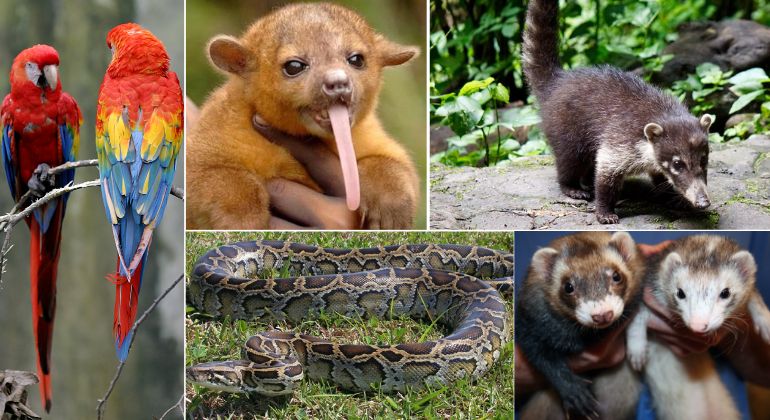
Laws in the US about exotic pet ownership vary, and New Jersey has strict measures for keeping wildlife or exotic species. Persons can obtain an Individual Hobby Wildlife Species Possession Permit for a fee. Sadly, one permit allows numerous animal ownership.
Banned pets are primates, bears, non-domestic cats, and dogs. You must acquire a permit detailing the specifics of each exotic creature in your menagerie and prove you can manage them like a zoo or educational facility.
You can learn about the complete list of permit-exempt species in New Jersey.
Jersey residents can keep different exotic creatures with lesser permits, like ferrets, kinkajous, coati, pythons, macaws, hedgehogs, and reptiles. Find out more with this complete list of permit-required species in New Jersey (always subject to change).
Big Fives
New Jersey has permit requirements and bans on some exotic stock. The Dangerous Wildlife Act makes owning specific species illegal. For a comprehensive list of dangerous beings that fall under the Dangerous Wildlife Act, read Schedule 1.
Venomous and Large Reptiles
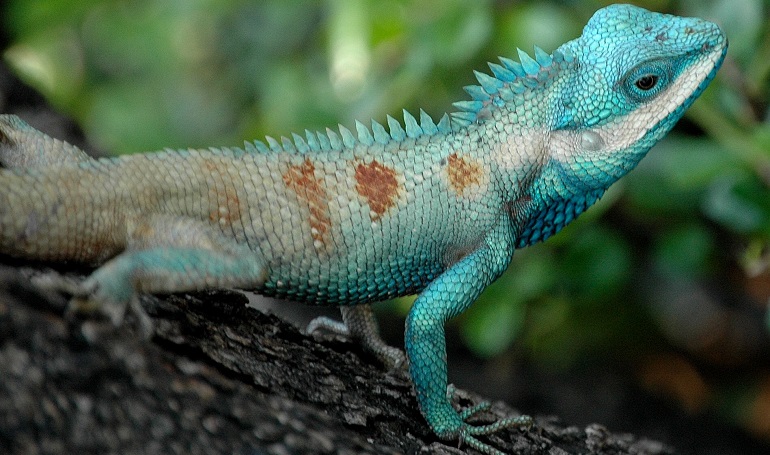
Venousmous and large reptiles are fascinating, but owning one is irresponsible. Period. They belong in the wild and are banned in the Garden State.
- Gila Monsters & possibly Beaded Lizards (Helodermatidae)
- Venomous Snakes (Elapidae, Viperidae, Crotalidae)
- Crocodilians
Primates
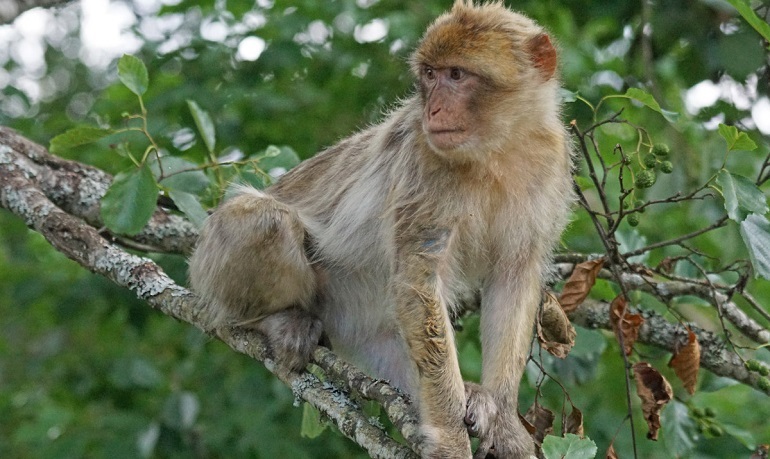
We’d all like to experience lacing our fingers through a chimpanzee’s hand and interacting with these intelligent primates, just like Jane Goodall.
However, we’ve harmed these vulnerable primates enough by destroying their habitat and exploiting them for our gain in the entertainment industry and personal use, like circus monkeys.
Nonhuman Primates Include:
- Apes
- Baboons
- Old World Monkeys (Cercophithecidae)
- New World Monkeys (Cebidae)
Bears
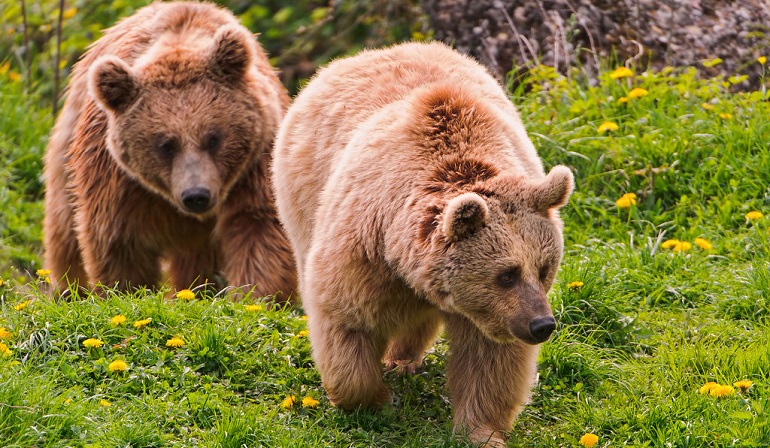
All species of Ursidae, including:
- Grizzly,
- Black and brown bear,
- Polar bear
- Other, panda, sloth, Asian, sun, spectacled
Exotic Felids
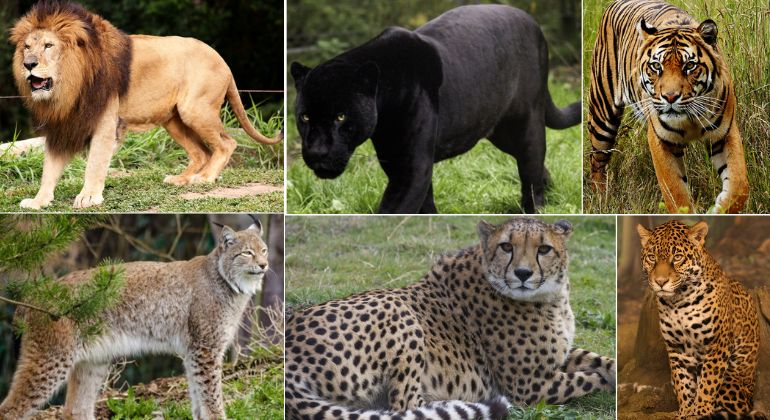
Felids means feline or cat stock that is not domestic and potentially dangerous, like lions, tigers, lynxes, panthers, jaguars, cheetahs, etc.
Exotic Canids
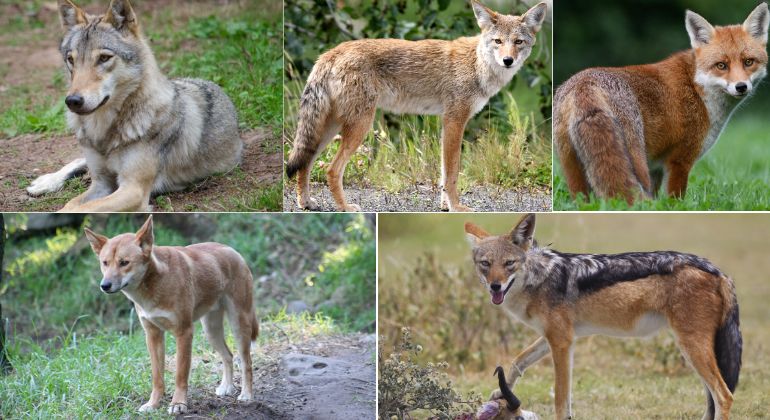
Canids mean canine or dog stock that is not domestic and potentially dangerous, like wolves, coyotes, foxes, dingos, jackals, and more.
Further Restricted Animals
Birds and other mammals also have illegal distinctions and include:
- Afro-Asian Ring-necked Parakeets (Psittaculis)
- Monk Parakeet & possibly Cliff Parakeet
- Patagonian Conures
- Prairie Dogs
- Ground Squirrels (Spermophilus) from Europe and Asia
Persons owning these pets must have and provide credentials of experience, working knowledge, and the facilities to house and prevent public access, including a written statement of purpose and the ability to provide temporary emergency contingency.
List of Exotic Pets in NJ
There are several exotic pets NJ residents can bring home with a permit. Before committing, ensure you can provide these creatures with a haven to match their needs.
Opossums
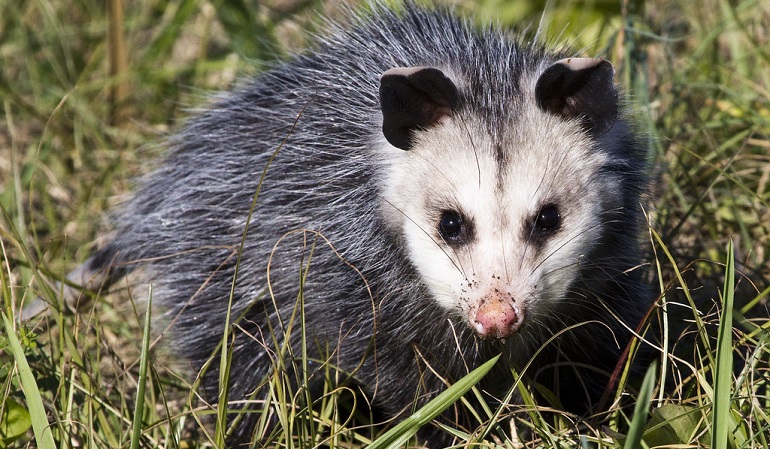
Opossums are North and South American marsupials, and many use the term possums. Possums are the Australian cousins. They are super beneficial to the environment and eat a million ticks.
In Jersey, residents can obtain an inexpensive permit to own a pet opossum as long as the opossum is from a certified breeder.
Hedgehogs
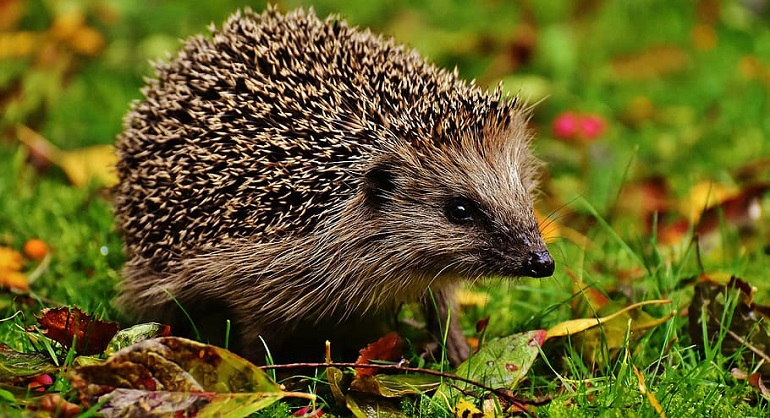
Adorable and prickly, hedgehogs are not native to the US. They come from Europe, Asia, and Africa. Hedgehogs have a bad rap way back as destructive and therefore persecuted by locals. They are not native to New Zealand or Australia either.
Hedgehogs can transmit diseases like salmonella. You need a permit to love this critter.
Skunks
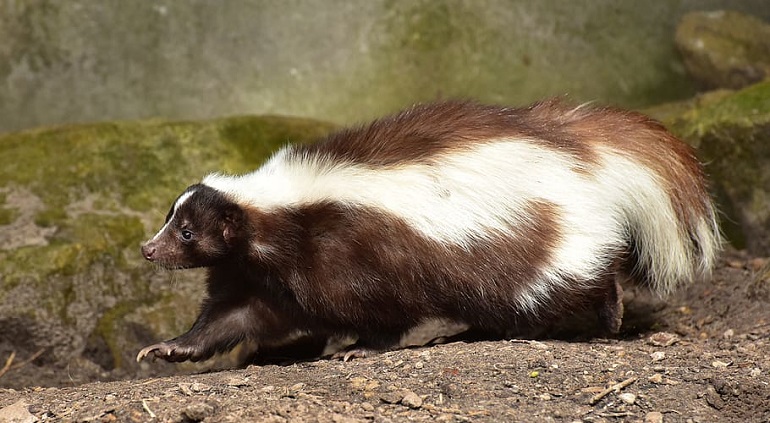
Skunks are super cute despite the stench they can unleash. If you have a permit and buy a pet skunk from a breeder, you must still buy an annual permit. Some people have luck domesticating this fun and intelligent stinker and take it for a long walk on a leash. De-sunking is essential if you keep one as a pet.
Some states like North Carolina and Nevada ban skunks as they’re susceptible to being rabies carriers.
Fun Fact: A skunk’s spray is so potent it will ruin your lunch for days–been there and done that and never want to relive that disgusting, vomit-inducing stench again.
Red Squirrel
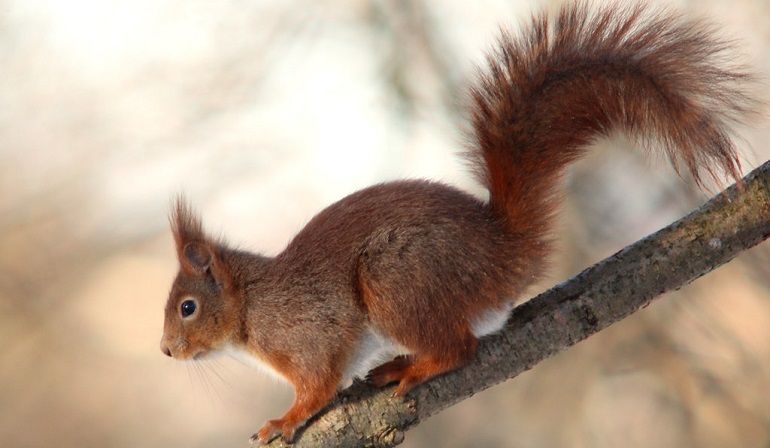
You don’t need a permit to keep a red squirrel in New Jersey, although some rodents require licensing. These limber acrobats are happiest in coniferous forests throughout the US, from Georgia to the Rockies.
In some areas of the world, the red squirrel is threatened by habitat loss and the introduction of gray and black squirrels.
Flying Squirrel
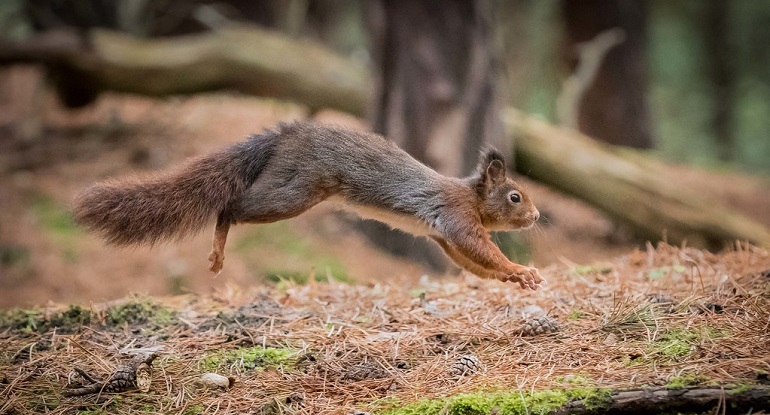
If you have a permit and renew it yearly, you can be a proud flying squirrel pet owner. About 50 species of these super-gliders catapult from tree to tree to avoid ground predators.
Flying squirrels can become very attached to their pet owners, but they take considerable time and resources to keep healthy and happy at your place.
Raccoon

These masked bandits are seriously intelligent and might outsmart their keepers and escape. If you buy one from a breeder, be aware that raccoons can be aggressive and challenging to domesticate. Since they are super bright, they’re capable of planning revenge.
Boa constrictor
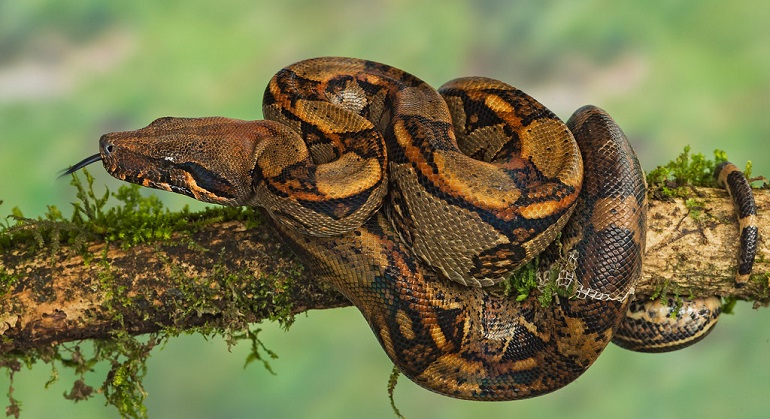
Boas are probably the number one pet snake choice for many and don’t require a permit. The rubber and rosy boa are native, but most pet trade boas come legally or illegally from Central and South America, Asia, India, and Africa.
To keep these graceful reptiles healthy, make sure you can provide the proper habitat.
Ostrich
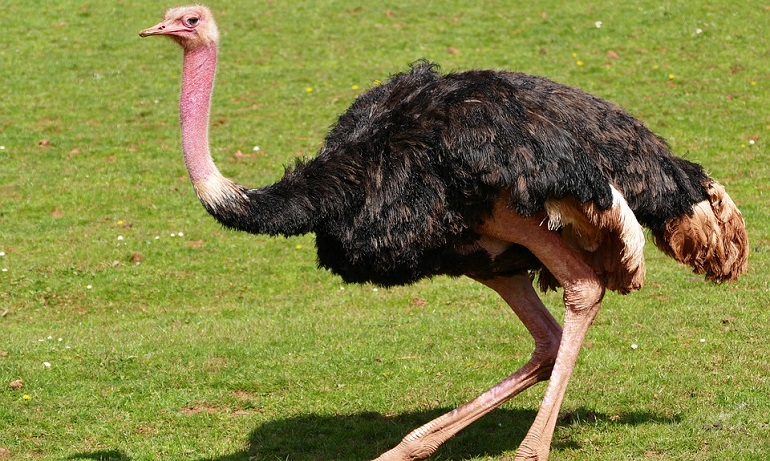
Ostrich and emu farming became a trend in the 1980s when people sought a healthier source of lean protein. The movement never caught on, and many ostriches roam areas in the southern states though they’re not native.
They are classified as livestock and don’t require a permit. However, they can kill you.
Kinkajous
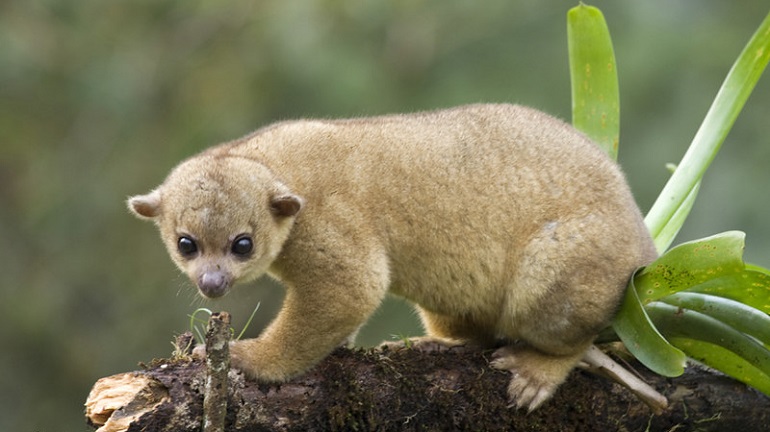
It’s easy to see why anyone would want to keep a kinkajou at their place: they’re so cute. It would be best to have a permit and documentation from the importer or breeder to keep a kinkajou.
They are native to the Sierra Madre in Mexico, Central America, and South America. Unless you have a tropical indoor tree canopy located in your house, where kinkajous spend their lives, don’t torture one by keeping it in a cage.
Coatimundis
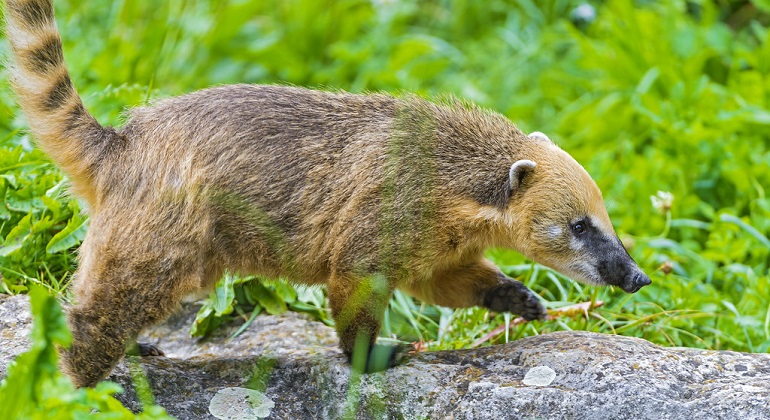
Coati or coatimundis are like the cousin once removed from the raccoon species. Coati inhabits parts of North, South, and Central America. To keep one, you need a permit. You’ll also need a secure habitat, or they’ll more than likely explore the neighborhood.
Otters
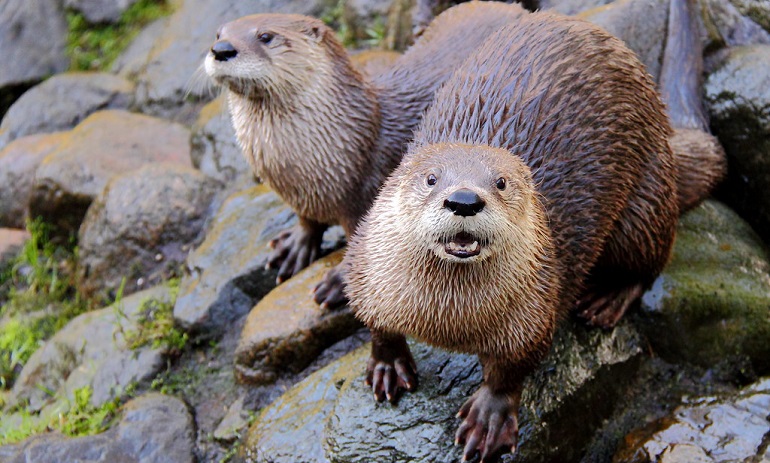
If you can prove to the state that you have an appropriate enclosure to keep otters, you might get a permit to house them. However, otters make notoriously bad pets.
These semi-aquatic creatures are aggressive and territorial. Don’t let their cute faces and adorable fingers fool you.
Wallabies
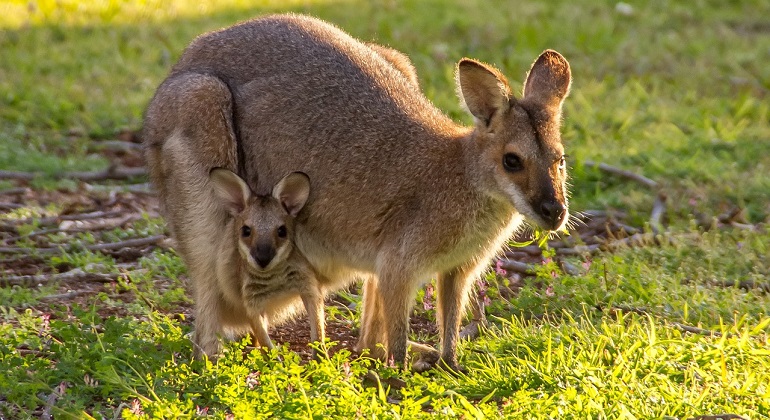
Wallabies are miniature versions of kangaroos, and with a permit and safe enclosure, you can keep one in New Jersey. These hopping marsupials are indigenous to Australia and considered a pest by some as they compete with other domestic and non-domestic mammals for food.
Sloth
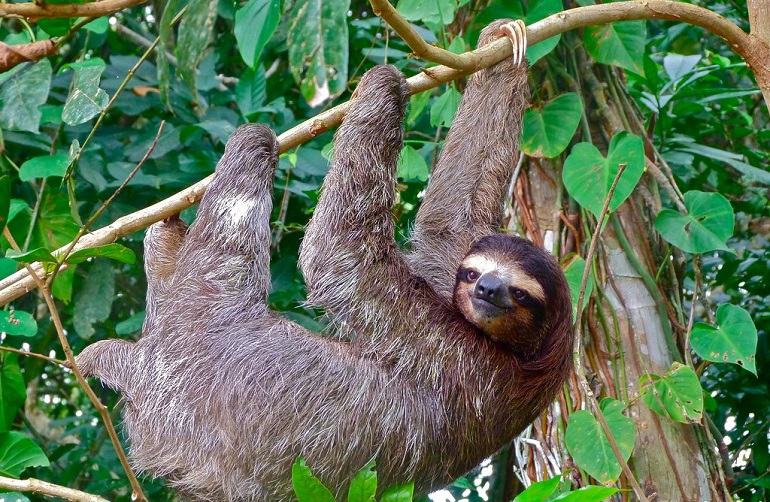
With the correct permit, you can own a slow-moving sloth. These ground or tree mammals are indigenous to Central and South America, so unless you have a tropical forest in your living room, you won’t have a suitable habitat for these sluggish cousins of the armadillo and anteaters.
“I’ve been hugged by a sloth, and I liked it.” But I wouldn’t want to keep one. They belong in trees.
Alpaca
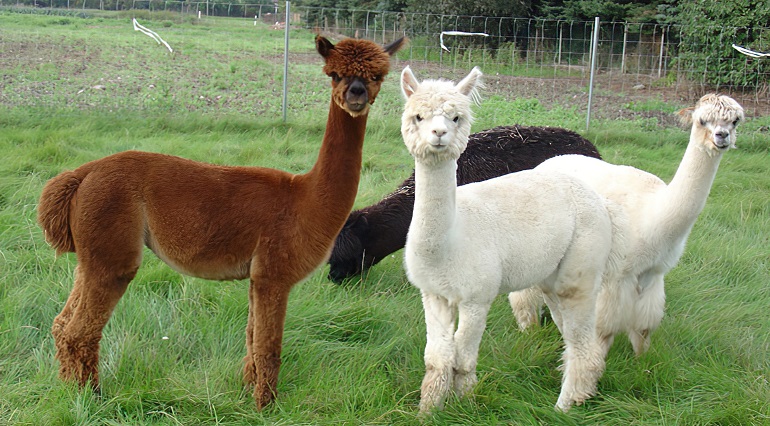
Many people confuse alpacas with llamas. These camelid mammals are native to South America and famous for their alpaca fleece. These hardy animals can survive at 11,000 to 16,000 feet above sea level. Since they are considered livestock, no permit is required.
Octopus

The documentary ‘My Octopus Teacher’ undoubtedly made many gasp, cry, and become fascinated by this brilliant being. They don’t need a permit, but octopuses are escape artists. It takes a thorough understanding of the species to keep one healthy and happy.
Capybara
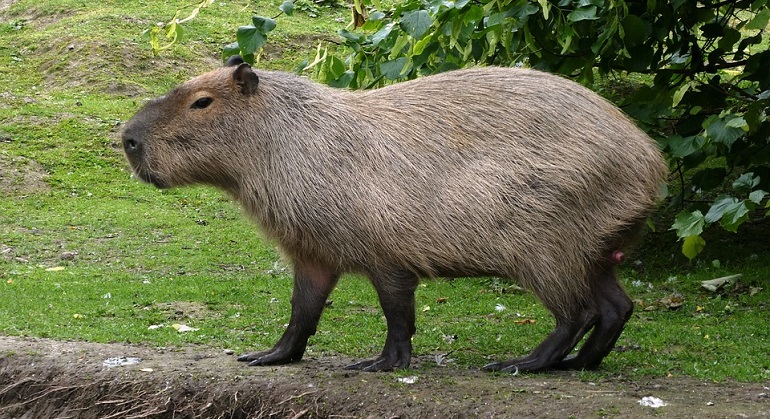
Capybaras are all the rage and popular pets in the exotic trade. These rodents are exceptionally cute. Capybaras are the largest living rodents and are native to South America. It’s legal to keep one in New Jersey with a permit, but they will eat their way through your garden.
New Jersey Exotic Pet Laws
Before committing to keeping an exotic pet law, make sure you know the ins and outs of the complicated legal system. New Jersey has some stringent definitions to keep animals, and regulations are governed under the fish and wildlife umbrella.
Examples of Pets That Residents Can Keep Without Permits Include:
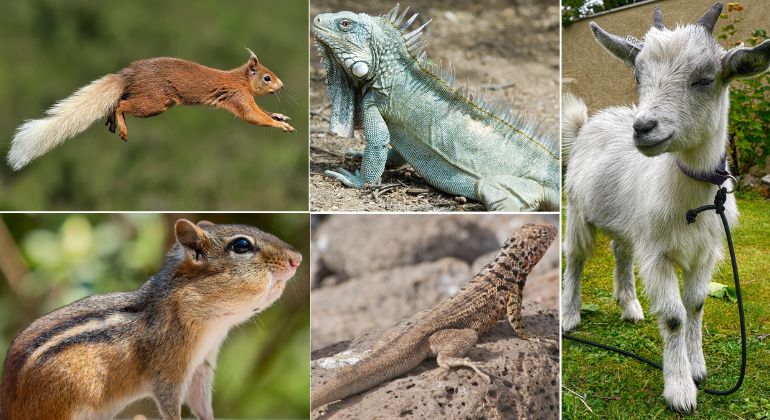
Examples of New Jersey’s Prohibited List Include the Following:
- Marine turtles
- Gila monsters
- Coral snacks
- Alligators
- Cobras
Before buying or importing any exotics into New Jersey, consult your local council. Some cities or counties have varying regulations. Also, transporting animals is stressful for the creature to be taken from its environment, whether in a natural or captive space.
Not so fun fact: Many exotic pets die in transport.
FAQs
Keeping any creature takes a considerable commitment, and it’s a lifelong responsibility.
Can You Own a Monkey in NJ?
No, you can’t own a monkey as they are considered a dangerous animal. While Great Apes aren’t explicitly listed, they fall under the endangered list governed by federal law.
For people with disabilities with primate service animals, remember that you may not keep your monkey in New Jersey. Check the potentially dangerous animals section to gain better insight.
Are Ferrets Legal in NJ?
With a permit, you can keep a ferret.
Are Sugar Gliders Legal in New Jersey?
Yes, you can keep a sugar glider without a permit. However, stay abreast of laws.
Can You Own a Stoat?
A stoat is a Eurasian ermine. Stoats are not specifically listed on the exempt list. Therefore get a permit.
Can I Own a Dragon Snake in NJ?
With a permit, you can own a dragon snake. Ensure it comes from reputable and legal sources, as you will require documents. Dragon snakes are non-venomous and don’t fare well in captivity. The best way to support a dragon snake is to keep them located in their natural habitat.
They are seriously cool looking, but if you love something, set it free (though a freed dragon snake will not return to prove its love for you.)
Is It Legal To Own a Capybara?
You can keep a capybara with a permit, but note they are enormous and need ample space and access to aquatic plants. It’s so cute when they eat their own poop.
Are Hedgehogs Legal in NJ?
With a permit, you can own a hedgehog in New Jersey.
Conclusion
Owning any animal takes time, patience, and resources and should not be taken lightly. At any given moment, there are 6.3 million dogs and cats in shelters in the US, and only about half find a permanent home–just saying!
Owning exotic pets and surrendering them to the wild or sanctuaries or shelters strains the system and the animal’s life.
I cried when I saw a dolphin swimming in the bay at La Paz, Mexico. I felt overwhelmed with emotion at how beautiful this aquatic ballerina was. However, I never considered owning one for my pleasure. It belongs in the wild, and I felt honored to see one.
If you love any wild species, consider volunteering at a wildlife sanctuary. Or better yet, find a way to study to become a professional photographer, zoologist, biologist, or veterinary specializing in wildlife.


